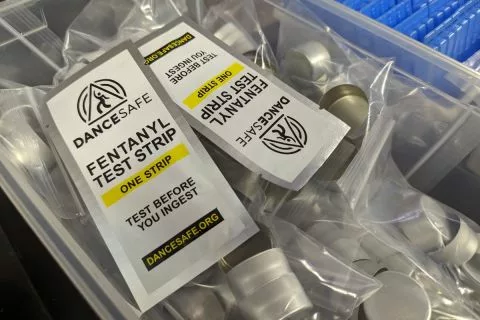The objective of both is harm reduction — the idea of reducing risk by acknowledging that “just say no” isn’t always an effective tactic in the fight against opioids and other drugs.
Related:
The bill to provide more protection for staff and volunteers at syringe access programs has proven more controversial in its first iterations. It would more explicitly protect staff and volunteers in syringe access and related harm reduction efforts. While those access programs are legal, the change would explicitly immunity from prosecution and provide blanket immunity from prosecution under those provisions for program workers or participants.
Its sponsor, Rep. Carrie Rheingans, D-Ann Arbor, acknowledges that the bill continues to be tweaked to make it more palatable to law enforcement.
Rheingans said one of the first concerns was addressed early.
In the initial bill, volunteers or staff of such programs were to be immune from prosecution if they were found with drugs. Workers and volunteers sometimes handle used paraphernalia, Rheingans said. In the newest draft, that has been reduced to protecting workers and volunteers if they have “trace or residual” amounts.
Still in discussion, she said, is precisely how far could immunity extend outside the physical location of a syringe-access program.
Syringe access programs are often talked about as a “brick and mortar place where it stores all of its supplies” or a mobile outreach van, she said.
“But sometimes we need to do outreach at a place that isn’t necessarily a program site,” she said. Could a volunteer working at a homeless shelter be protected, for example?
Working out the kinks is critical to saving lives, said Rheingans, who has a background in public health and first presented the case for the law change last fall.
Such programs aren’t without controversy, though. Some worry that programs attract crime to the neighborhoods around them and that needles are discarded carelessly as they’re replaced with new ones. Others say programs enable and condone drug use, undercutting anti-drug campaigns and police efforts.
But research also has shown that such programs curb the spread of communicable diseases.



